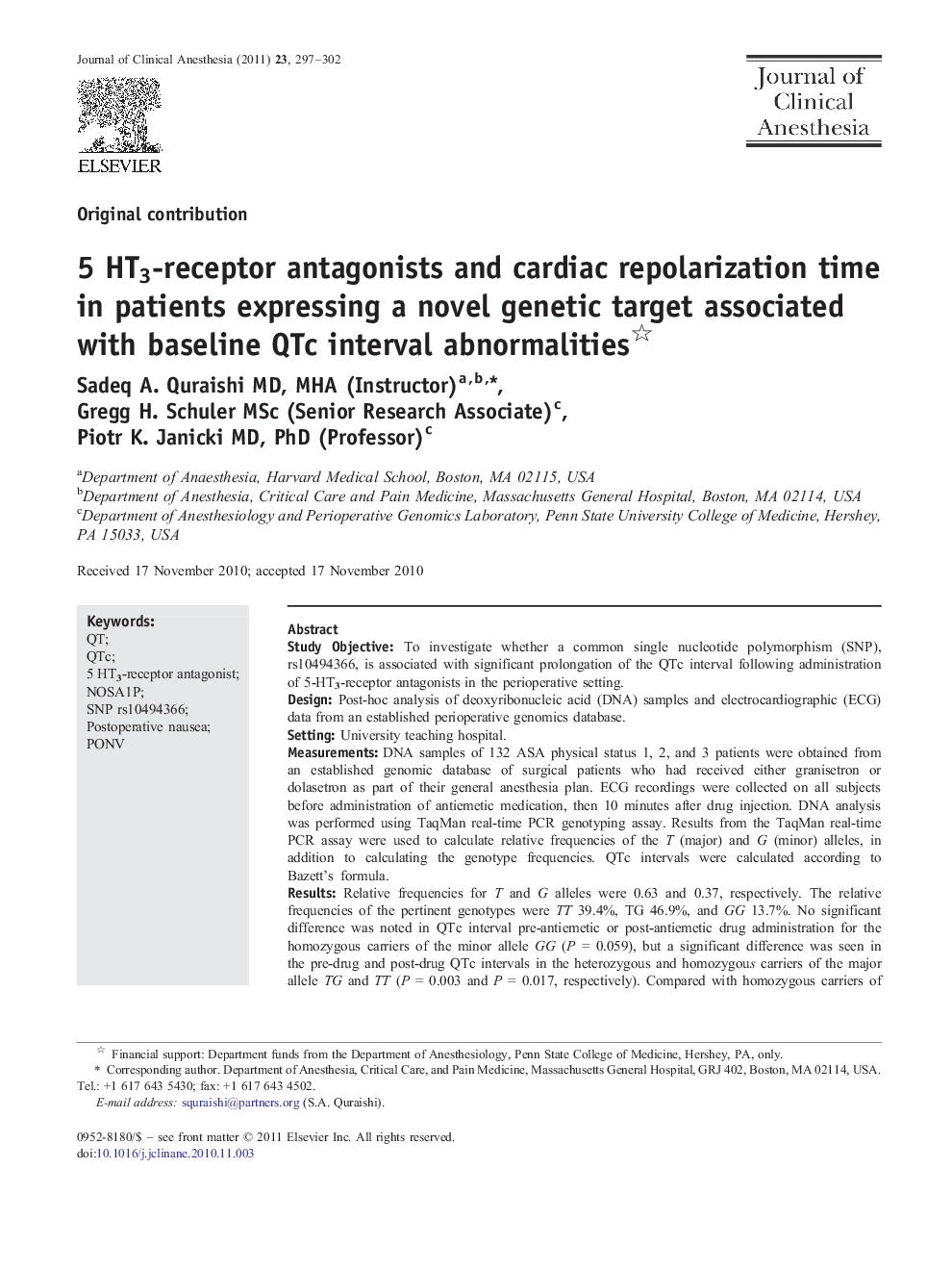| Article ID | Journal | Published Year | Pages | File Type |
|---|---|---|---|---|
| 2762680 | Journal of Clinical Anesthesia | 2011 | 6 Pages |
Study ObjectiveTo investigate whether a common single nucleotide polymorphism (SNP), rs10494366, is associated with significant prolongation of the QTc interval following administration of 5-HT3-receptor antagonists in the perioperative setting.DesignPost-hoc analysis of deoxyribonucleic acid (DNA) samples and electrocardiographic (ECG) data from an established perioperative genomics database.SettingUniversity teaching hospital.MeasurementsDNA samples of 132 ASA physical status 1, 2, and 3 patients were obtained from an established genomic database of surgical patients who had received either granisetron or dolasetron as part of their general anesthesia plan. ECG recordings were collected on all subjects before administration of antiemetic medication, then 10 minutes after drug injection. DNA analysis was performed using TaqMan real-time PCR genotyping assay. Results from the TaqMan real-time PCR assay were used to calculate relative frequencies of the T (major) and G (minor) alleles, in addition to calculating the genotype frequencies. QTc intervals were calculated according to Bazett's formula.ResultsRelative frequencies for T and G alleles were 0.63 and 0.37, respectively. The relative frequencies of the pertinent genotypes were TT 39.4%, TG 46.9%, and GG 13.7%. No significant difference was noted in QTc interval pre-antiemetic or post-antiemetic drug administration for the homozygous carriers of the minor allele GG (P = 0.059), but a significant difference was seen in the pre-drug and post-drug QTc intervals in the heterozygous and homozygous carriers of the major allele TG and TT (P = 0.003 and P = 0.017, respectively). Compared with homozygous carriers of the minor allele, absolute risk increase for QTc interval prolongation after antiemetic administration was 0.08 and 0.15 in heterozygous and homozygous carriers of the major allele, respectively.ConclusionHomozygous and heterozygous carrier status for the major SNP, rs10494366 allele (T), in intron 1 of the human NOSA1P gene may be associated with an increased risk of QTc interval prolongation following administration of 5-HT3-receptor antagonists in the perioperative setting, when compared with homozygotes for the minor (G) allele.
